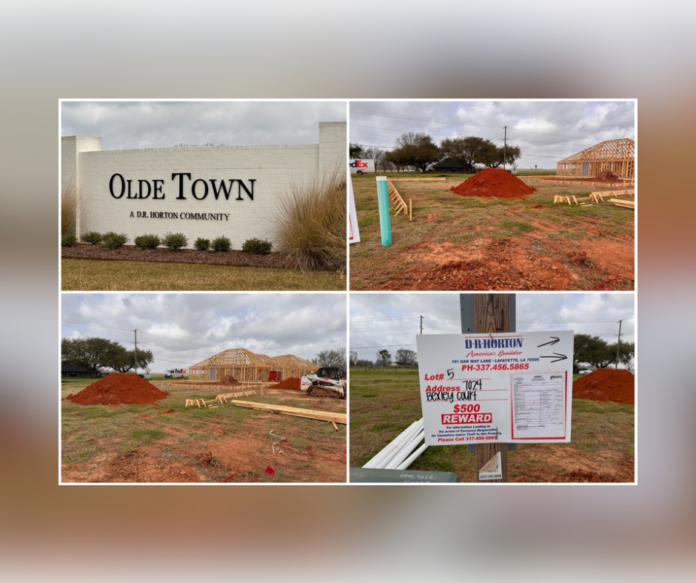ALEXANDRIA, La. (3/13/2025) – Residents and community members have raised serious concerns about the quality of home construction in the Olde Town development by D.R. Horton. Many have questioned whether these homes are being built to last, and now the Rapides Area Planning Commission (RAPC) has responded.
What the Community Noticed:
• Grass and Vegetation in the Build Site – Shouldn’t the ground be properly cleared and compacted before laying a foundation? Grass and organic matter can decay under the concrete, leading to shifting, cracks, and long-term instability.
• Minimal Soil Preparation – Where is the proper grading and compaction? If the soil isn’t compacted correctly, these homes could experience foundation failure in just a few years.
• Formwork Issues – Are these foundation forms even level and secured properly? A poorly poured slab means trouble down the line.
RAPC’s Response:
According to Matt Johns, Executive Director with RAPC, there are two key points:
1. The grass seen in the foundation area is not original ground – The entire site was previously elevated with engineered fill more than two years ago. However, over time, some grass has grown on top of that fill, which must be removed before new engineered fill is spread.
2. A superintendent change may have caused lapses in oversight – RAPC previously corrected an issue where D.R. Horton’s team attempted to cut corners by pouring foundation over grass. Their former superintendent had improved practices, but a recent leadership change on-site may have led to a misstep. Johns explained that dirt was dumped inside the foundation forms before the grass was properly removed, reportedly due to an incoming storm. RAPC’s building official immediately flagged this issue, and D.R. Horton is now being required to correct it.
Where Things Stand Now:
RAPC has mandated a “de-grassing” inspection before any future fill is placed and will be closely monitoring upcoming sites to ensure compliance. However, many in the community are disappointed that it took public concern for action to be taken.
Is RAPC doing enough to prevent these issues, or just fixing them when caught? Are future homeowners being protected from past mistakes?
If you’re planning to buy in this development—or already have—ask questions now before it’s too late.
What do you think? Does this response ease concerns, or does it raise more questions?
Previous Article: Combined Neighborhood Meeting on Flooding Postponed Due to Winter Weather








